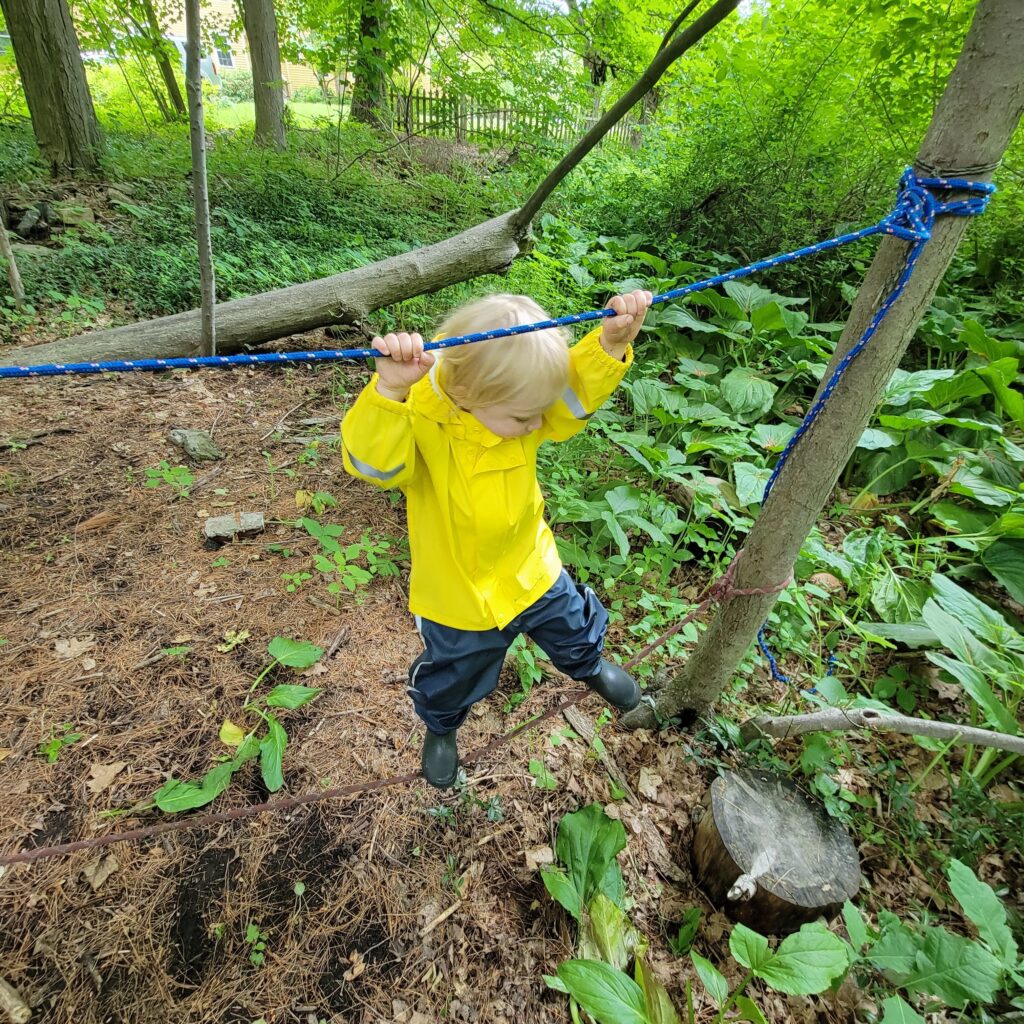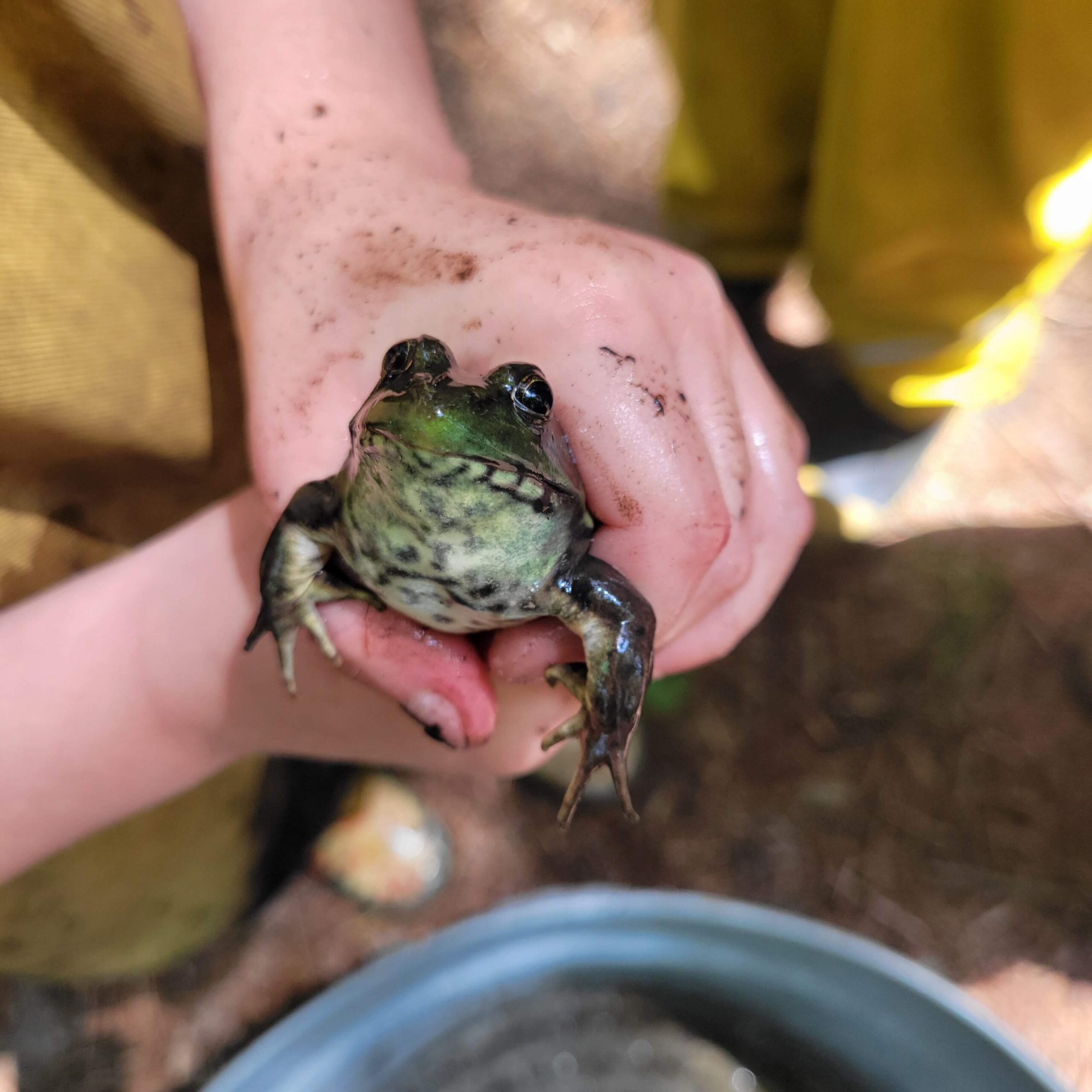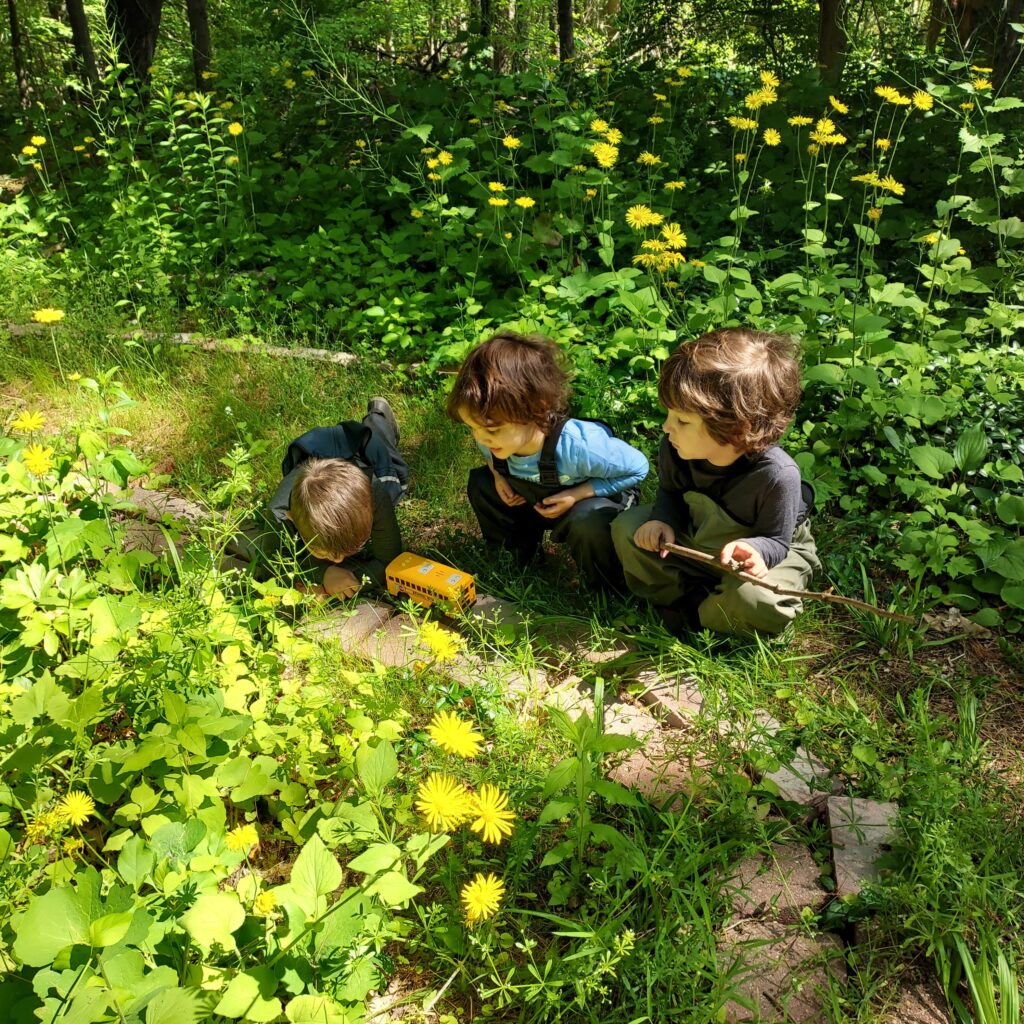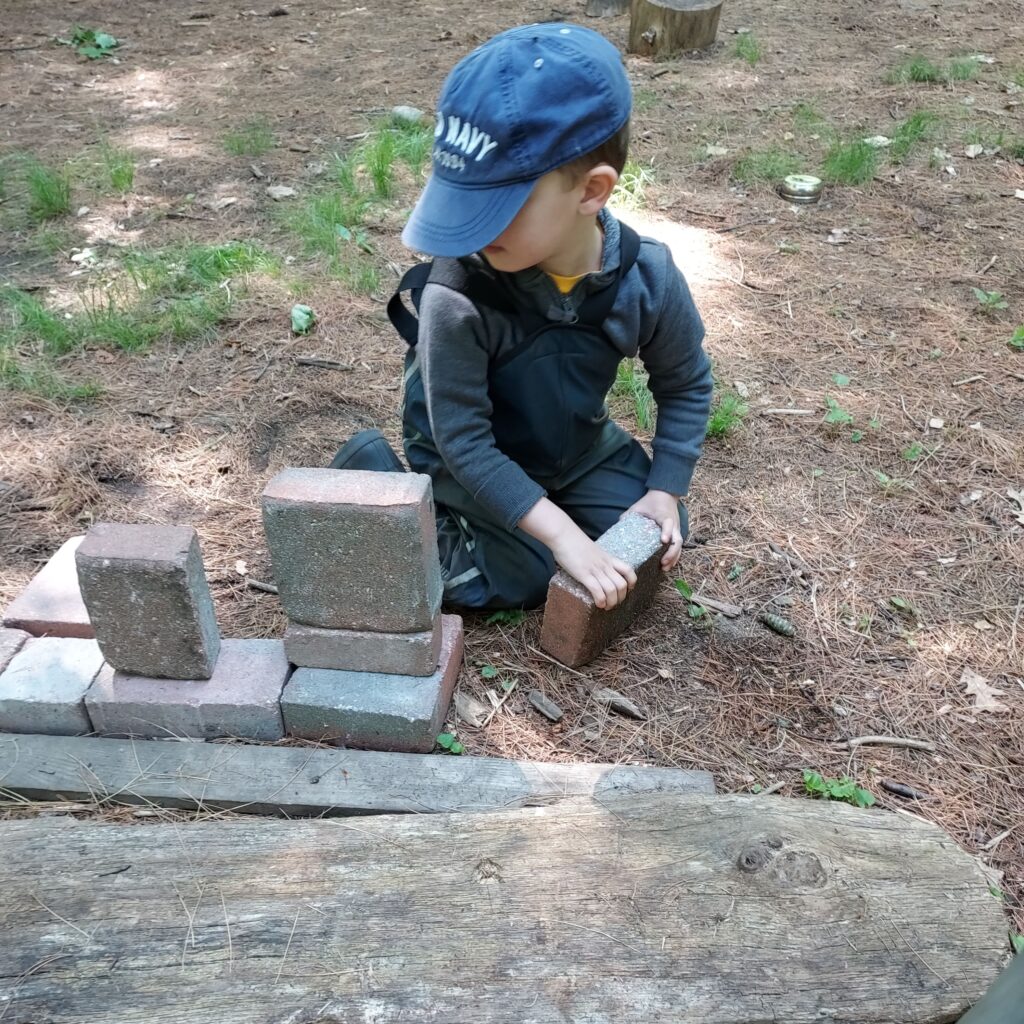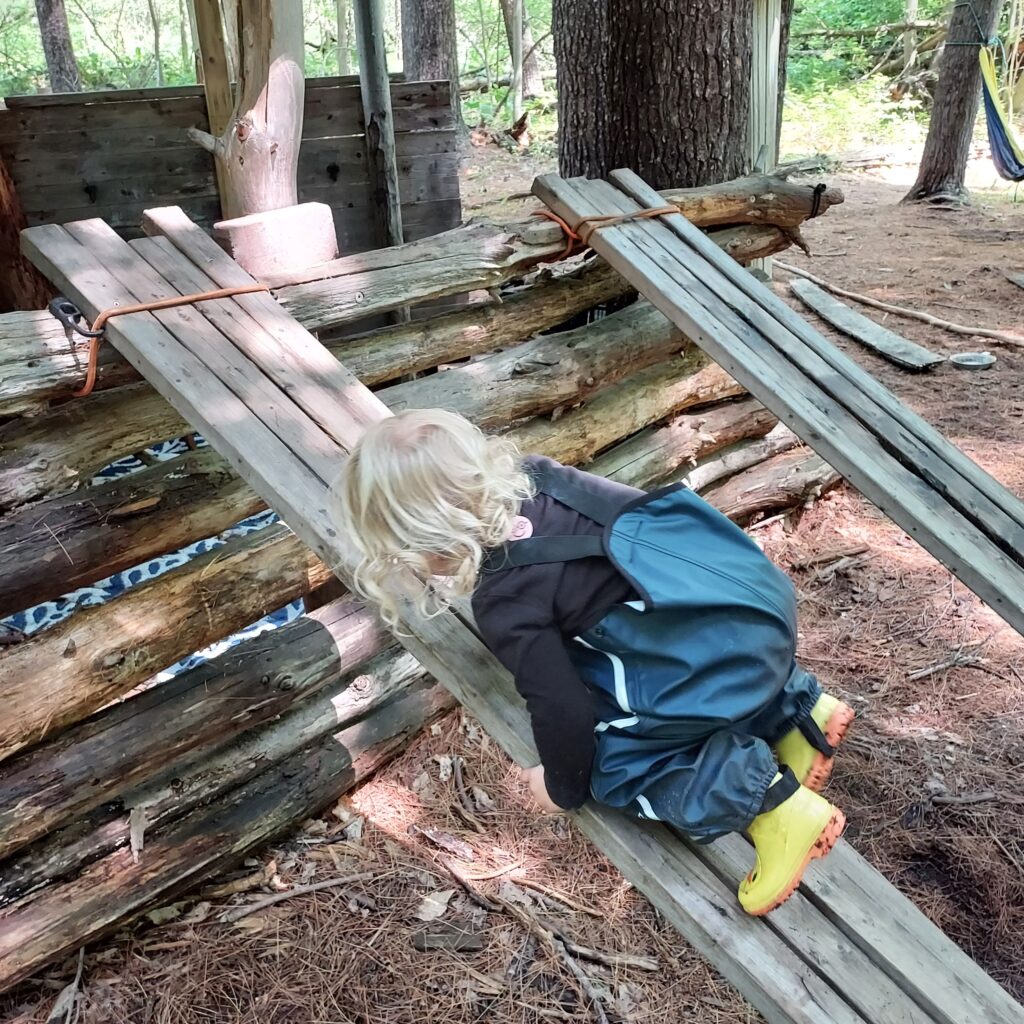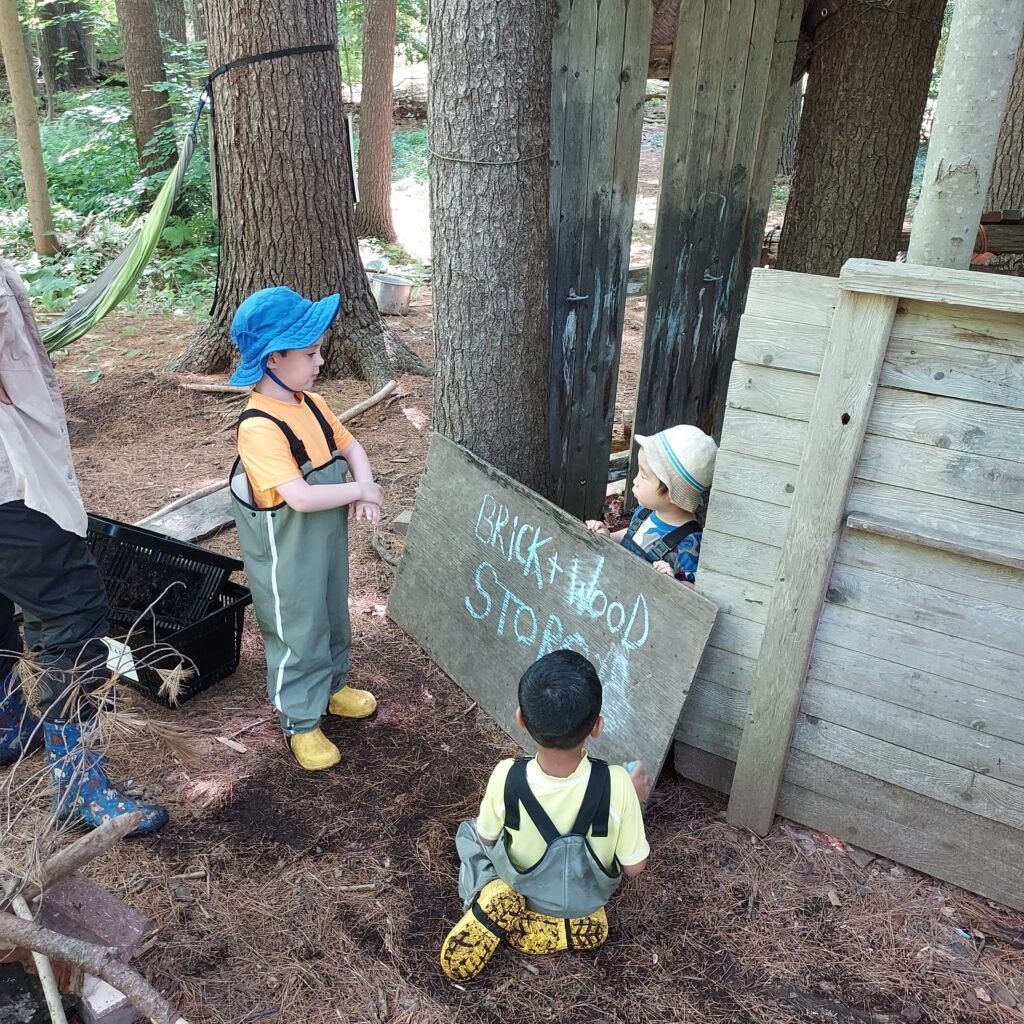Nature-based education
At FCNS, we hold the dual goal of promoting early childhood development through developmentally appropriate practices as well as developing children’s environmental literacy through their sense of place and concern and care for the natural world. We use nature as a central organizing theme but also follow the lead of the child and their emerging interests. Experiential learning or “learning by doing” is a guiding philosophy as the children explore their surroundings. We spend the majority of our time outside daily, weather permitting, which includes instructional time, free play, and investigations. We value and support children’s healthy and appropriate risk-taking in play while managing hazards as they emerge.
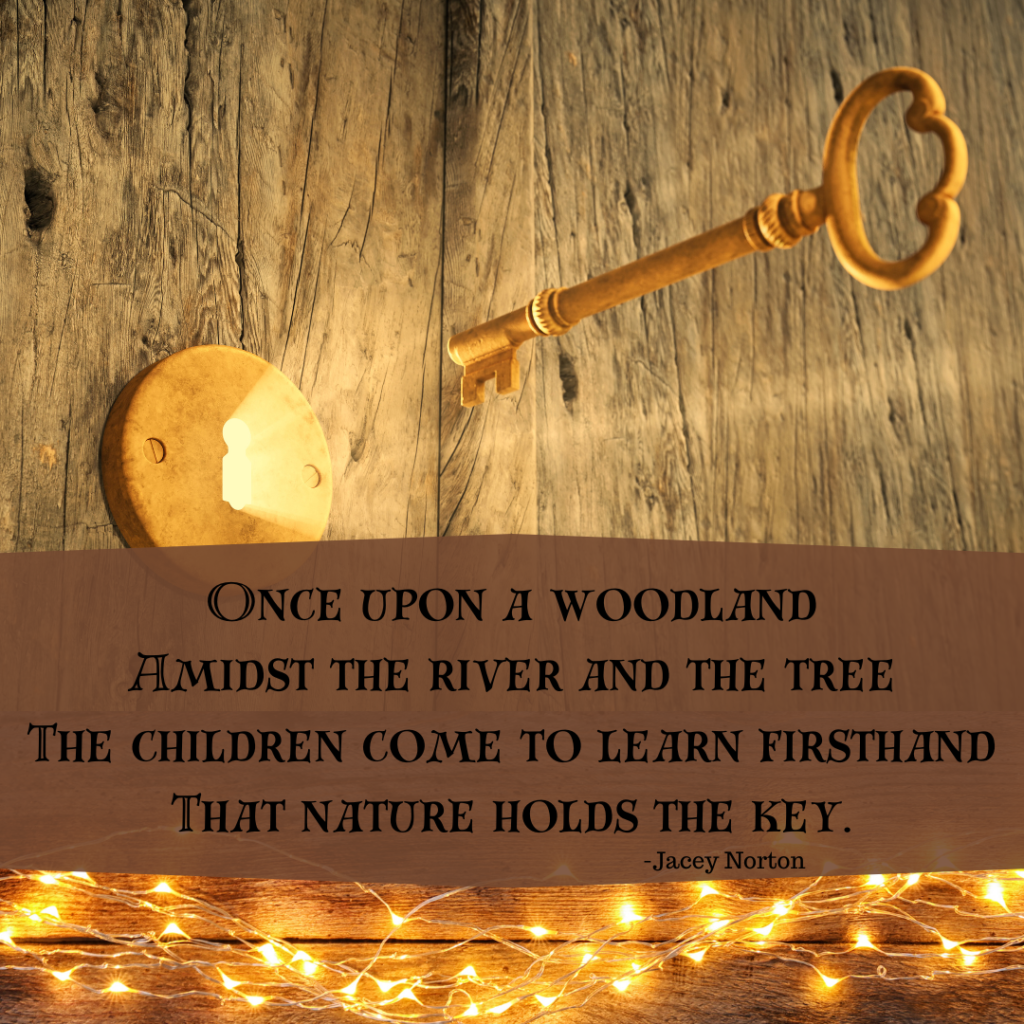
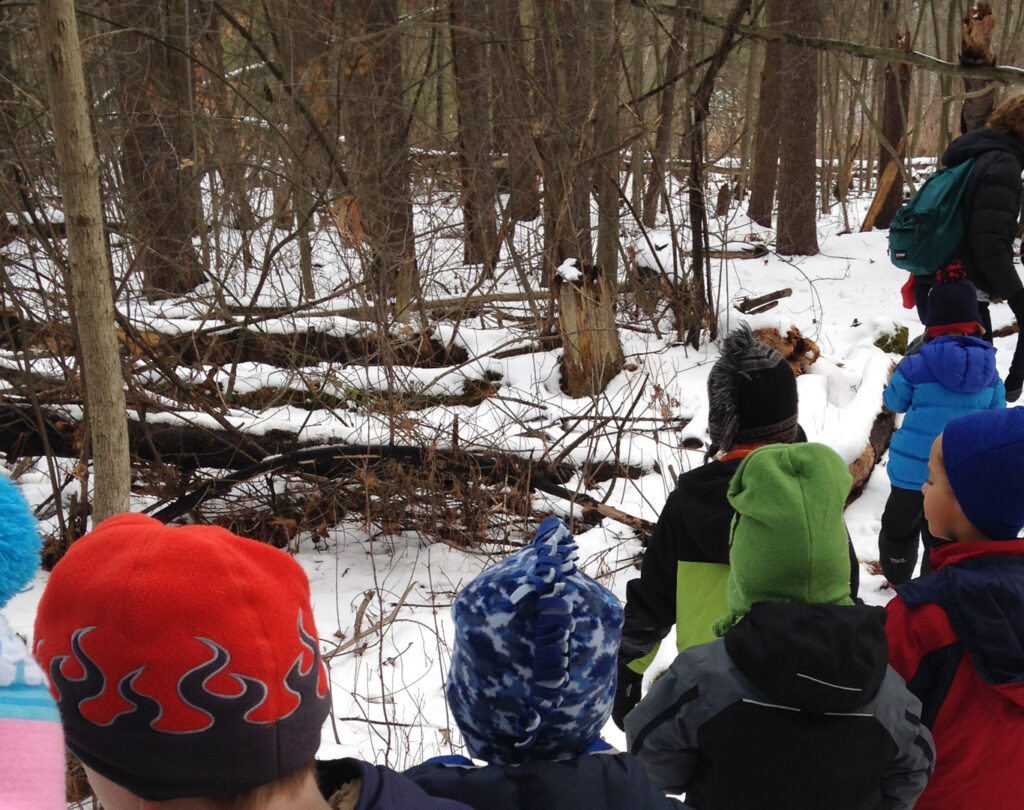
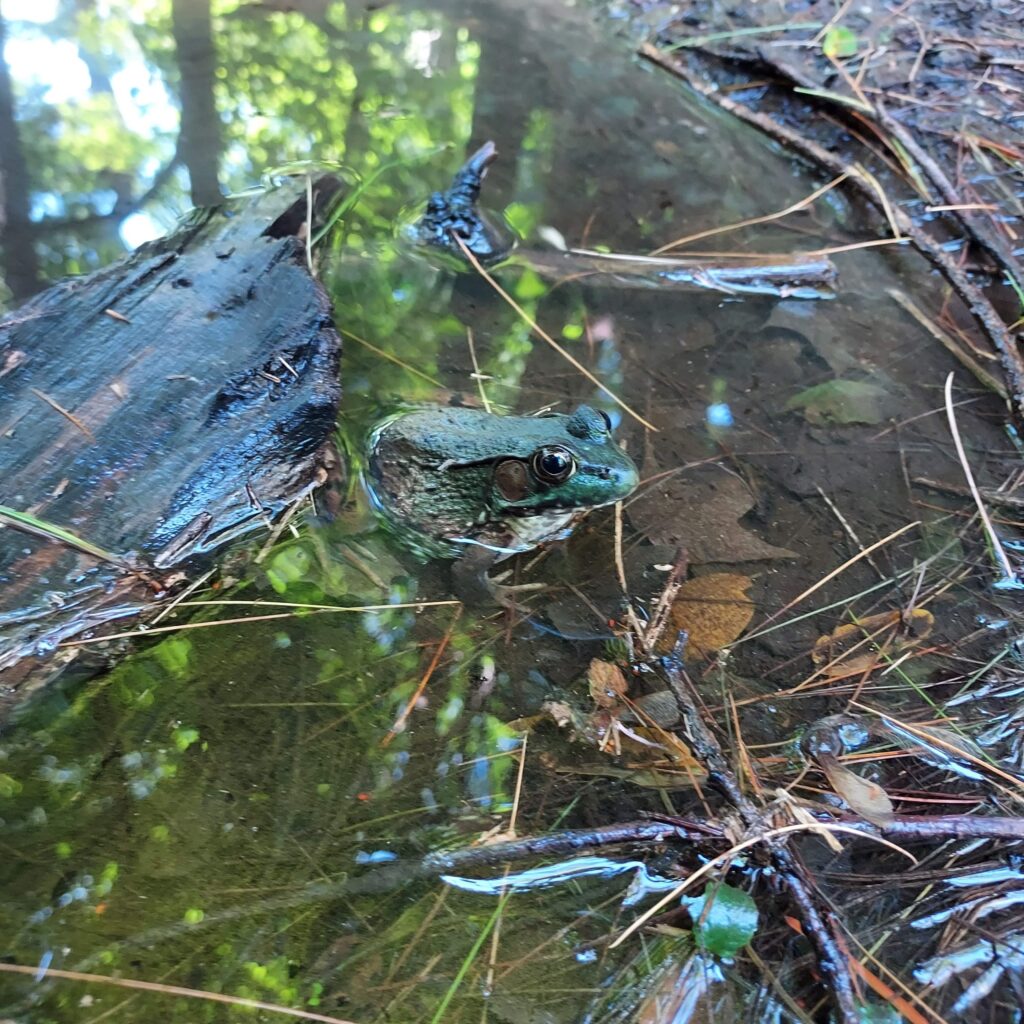
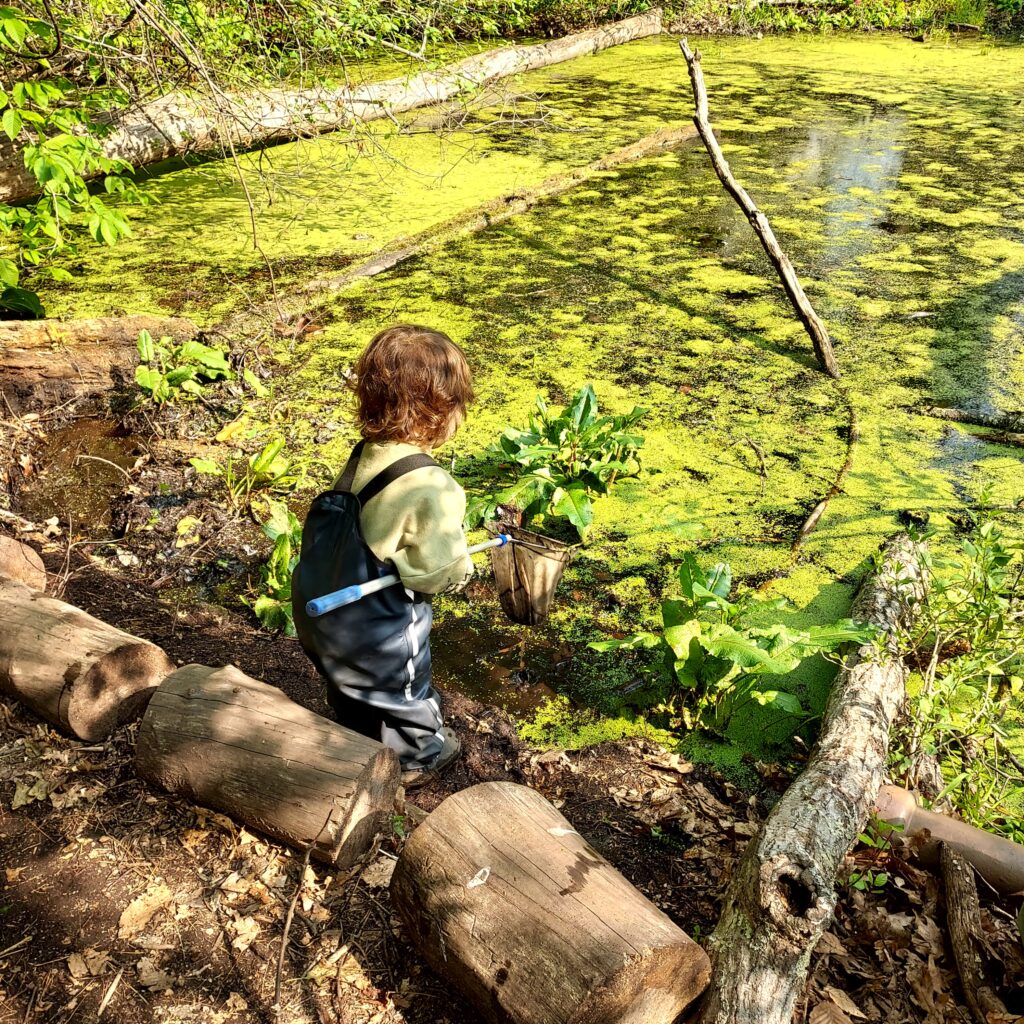
Connecting children with nature
Framingham Centre Nursery School believes in the importance of providing children with opportunities to explore and investigate the natural world around them. You may wonder why these experiences are so crucial.
Many of the developmental tasks that children must achieve—exploring, risk-taking, fine and gross motor development and the absorption of vast amounts of basic knowledge—can be most effectively learned through outdoor play. Our culture is taking outdoor play away from young children through excessive technology use, elimination of school recess, and academic standards that push more and more developmentally inappropriate academics into our early childhood programs, taking time away from play.
Build confidence
The way that kids play in nature has a lot less structure than most types of indoor play.
Positive feelings
Children who play in nature have more positive feelings about each other.
Self-awareness
Children learn about self and the environment.
Creativity
Nature-based promotes creativity and imagination.
Benefits of kids in nature
Here are some of the key points presented in the article Benefits of Connecting Children with Nature Why Naturalize Outdoor Learning Environments – The Natural Learning Initiative.
- Children who play in natural settings play in more diverse, imaginative and creative ways and show improved language and collaboration skills. Single use, repetitive play equipment becomes boring quickly.
- Children who spend more time outside tend to be more physically active and less likely to be overweight.
- Children who play in natural settings are more resistant to stress; have lower incidence of behavioral disorders, anxiety and depression; and have a higher measure of self-worth.
- Natural, irregular and challenging spaces help kids learn to recognize, assess and negotiate risk and build confidence and competence.
Risk vs. Hazard
A hazard is something a child does not see.
A risk is a challenge a child can see and chooses to undertake or not.
Eliminating risk leads to a child’s inability to assess danger.
